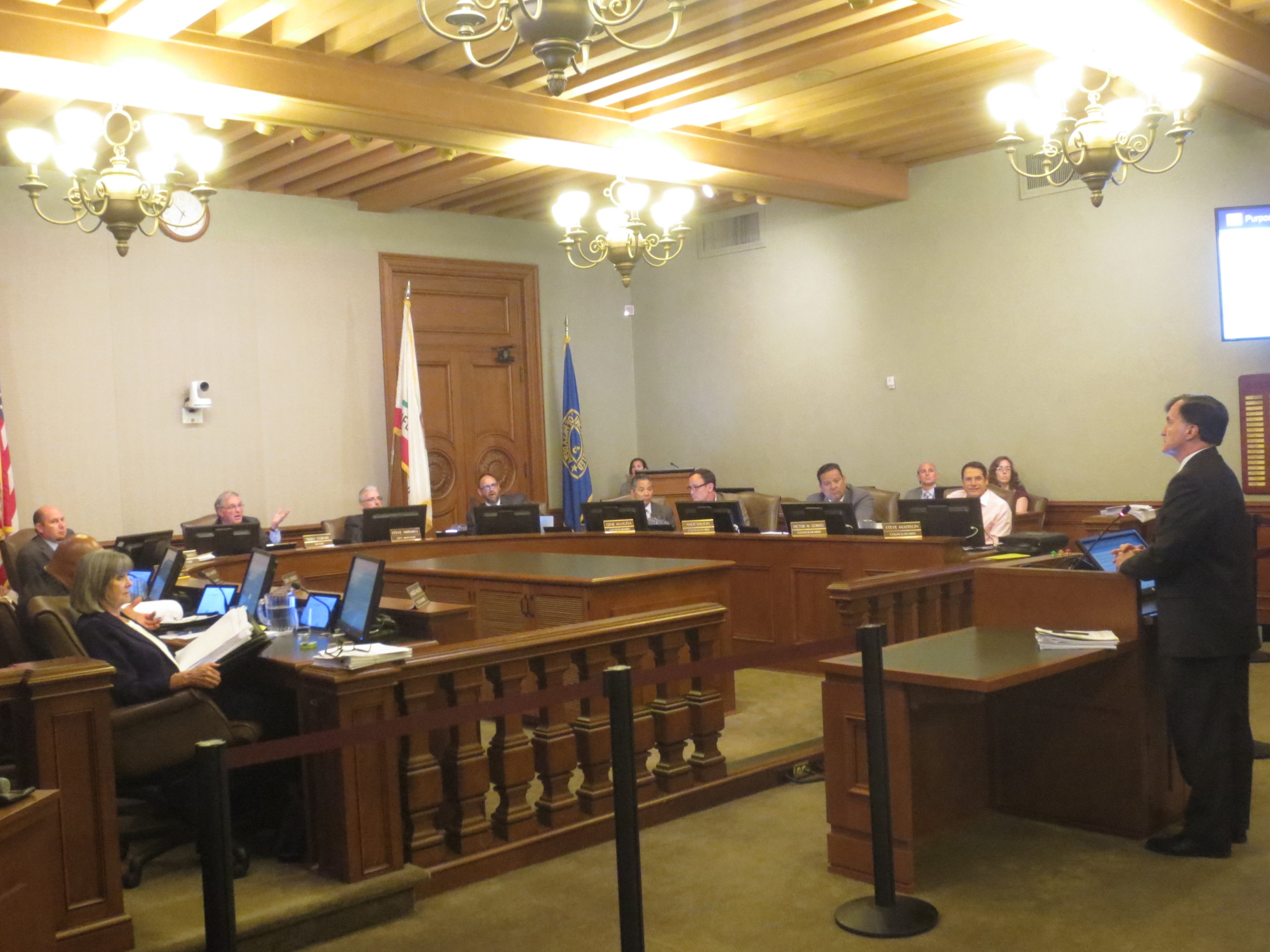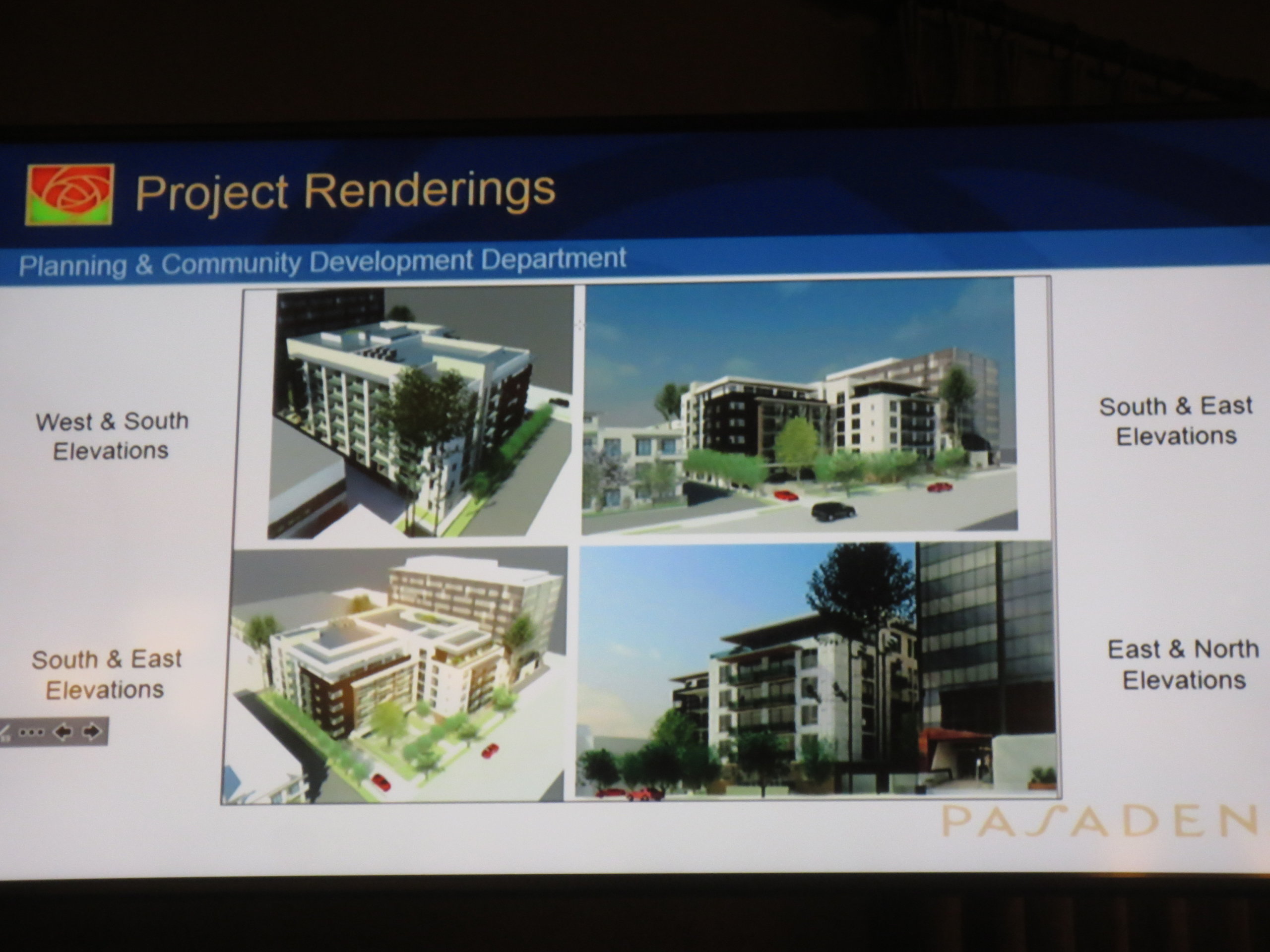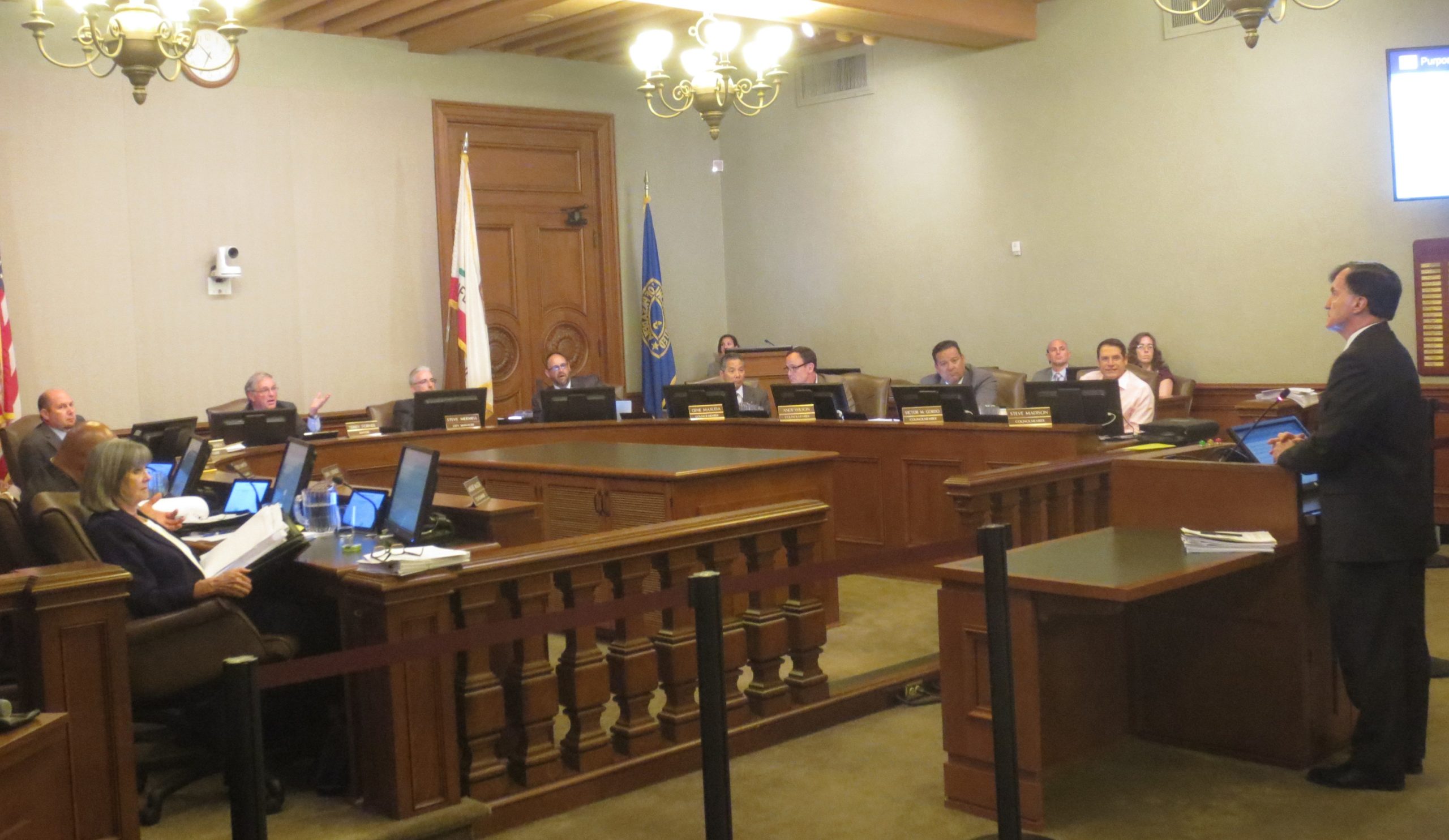
By Evan V. Symon
With the City Council room overflowing with over 200 citizens, the latest Pasadena City Council Meeting went into the wee hours of the morning early Tuesday. After hours of debate, a last minute vote and a crucial vote change effectively ended the long contested South Robles construction project.
The controversial plans for the proposed development at 253 S. Robles Ave. had been in the works since 2017. Some citizens were for the plan, citing the lack of affordable housing and wanting housing for young professionals. Other citizens were against the plan, arguing against the removal of protected trees, creation of an in-fill lot, no environmental review of the project, and the need to preserve a small town feel.
In front of City Council, the issue at hand was over the affordable housing concession. Under the plan, a 71 unit building would be expanded in both floor space and height to 92 units. This would be in exchange for eight of the new units being designated for very low income residents. The concession would also raise the height of the building to 80 feet, 20 feet above the city approved maximum height of 60 feet.
Outside Counsel Barbara Kautz gave testimony to her findings on the concession. “A city must grant an applicant an increase in density when the developer provides the number of affordable units specified in the statute,” said Kautz. “If the developer provides the units, he’s entitled to the bonus with the maximum of 35% density.”
She also added that concessions could only be denied if the concession doesn’t lower costs to provide low-income units, an adverse health of public safety reaction, or if it goes against state law.
After further testimony showing how the project met state law and would not disrupt local issues such s noise level and traffic, Councilmember Steve Madison questioned why the developer, Odyssey Development Services, received 21 condo units in exchange for only assigning eight units to be affordable units. Planning and Community Development Director David Reyes responded that it was skewed in favor of the developer. Councilmember Madison responded “It’s not just skewed, it makes no sense.”
Councilmember John Kennedy focused on the affordable housing crisis. “We have a housing crisis in the city of Pasadena,” Kennedy stated. “ I’ve been taking a number of hits from the uninformed that I have a magic wand to award affordable housing in the city of Pasadena. None of us do.” Kennedy pointed the finger at the state for taking away community development laws that placed greater pressure on local governments.
As the meeting continued, the developer’s representative, Richard McDonald, gave their side on the issue. “What’s in front of you is not a legislative matter,” testified McDonald, who said that the matter should not be handled as if they were attorneys and not politicians.
McDonald went on to say that everything had been done to the city’s plan and that the concessions were mandates. “You have to give us concessions,” said McDonald, “You have no choice. You can quibble about height. You can quibble about FAR (Floor Area Ratio). But you’d have to have substantial evidence to deny them.” McDonald also pointed out that the extra market rate units would help recoup the loss they would face on the very low income units.
Another round of public testimony brought up the same issues as before, with more citizens pointing out the “cumulative effects” of the project.

McDonald, given time to rebut residents’ arguments, said that no evidence was given, and that opinions and concerns they shared have nothing to do with state law.
“In the 20 to 30 odd cities where I do work, this is what we run into all the time,” said McDonald, “Single family neighborhoods that don’t want affordable housing.”
The vote over rejecting the concession, taken after midnight, was deadlocked at 4 to 4. Councilman Kennedy soon came up with a new motion. This would approve the building, but with the change of adding three additional very low income units for a grand total of 11.
McDonald said it was a state matter but couldn’t answer for a voluntary change. Along with the developer, McDonald went outside to discuss the change. After a tense moment, McDonald reappeared before the council. He noted that this was all “on the fly” but agreed to the change.
After getting a promise of an assurance of a letter from McDonald to hold up his end of the new plan, another vote was held for approval with the unit change. Councilman Wilson, citing dislike for the perceived “horsetrading” that led to the new vote and voting for something that didn’t reflect the “policy and law in which we’re here to operate by,” voted no. Wilson’s change of vote turned out to be the deciding vote. As the clock struck one, Mayor Terry Tornek announced that the motion failed and that the project was effectively killed.
Due to the lateness, a vote over a similar property and concession on North Madison Avenue was shelved for Aug. 19. In other council news, a part of Arden was announced as a Landmark District. The new Arden Road Landmark District includes 28 homes built between 1917 and 1930 in a variety of styles. Despite a lower than usual number of homeowners agreeing to the new District, the motion passed unanimously.







